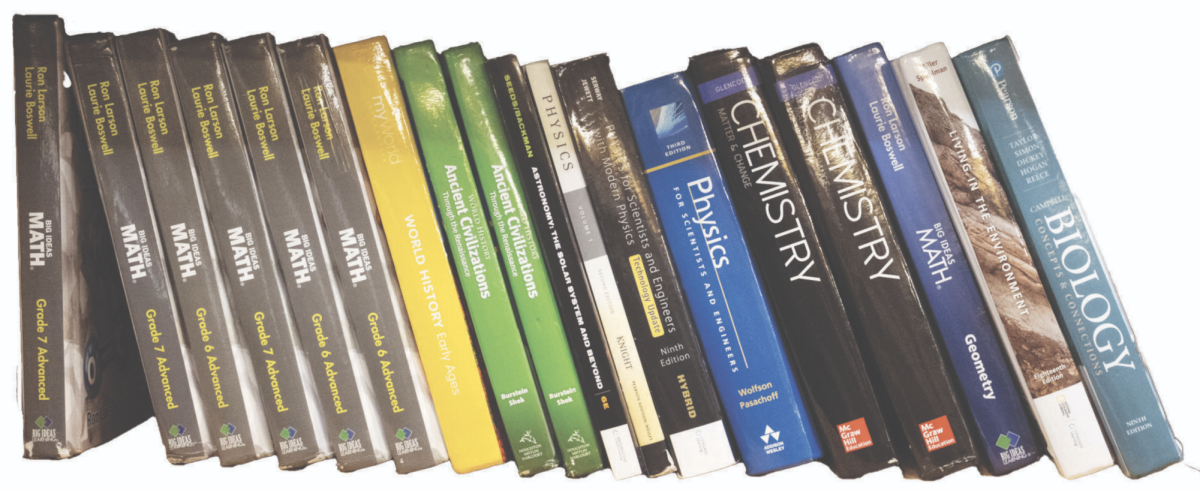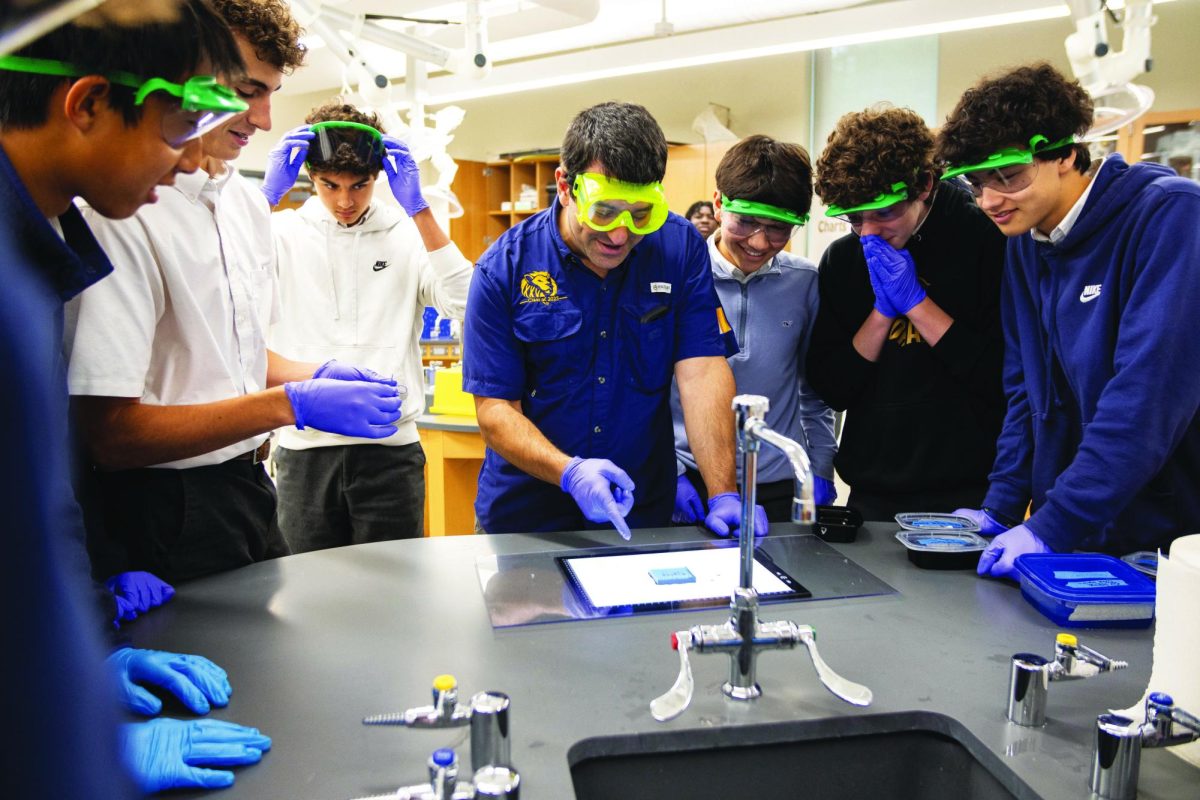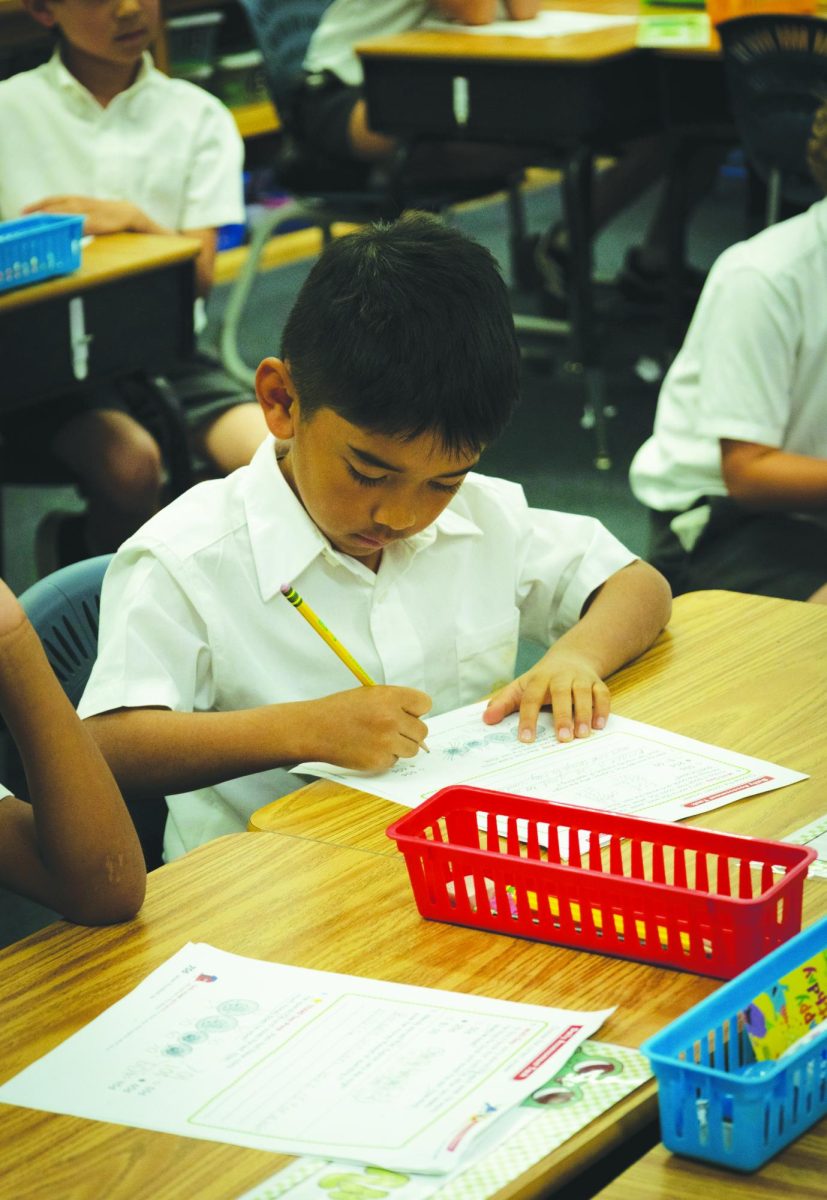Out of 12 proposed science textbooks this past year, seven were rejected by the Texas Board of Education. Many of these proposed textbooks contained controversial topics such as climate change, sparking debate over what is appropriate in a textbook. The Texas Board of Education is responsible for public school curriculum standards and reviewing instructional material.
Across the United States, schools grapple with the issue of finding age-appropriate and informative textbooks for their students. Teachers go through the process of debating their textbook choices with curriculum designers, school administrators and parents’ associations. This issue has become increasingly prevalent, with school administrators and parents clashing over the appropriateness of specific textbooks.
Here, teachers work with department chairs to select appropriate textbooks, and orders are placed through an online service.
As the head of the science department, Stephen M. Seay ’68 Science Department Chair Fletcher Carron leads the crucial process of selecting books for the several science curricula.
“We leave it to the teacher to propose, and then department chairs review the selected books,” Carron said. “In our department, the expertise lives with the people who teach the various subjects, not with the department chair, so I might just look at the textbook to review appropriateness for the level.”
Because public schools are funded and therefore regulated by the government, school material is often highly monitored and filtered, resulting in textbooks with sensitive topics being banned.
“We, as an independent school, have the freedom and support to present material as we see fit,” Carron said. “We do not feel pressure to fall in line with something that’s happening on a statewide level politically. In fact, we take pride in being able to teach science the way it should be taught.”
In addition to textbook selections, teachers have certain freedoms over choosing other ways the material is presented to students. These freedoms allow students to experience various viewpoints during their time at the school, creating a broader knowledge base for all Marksmen.
“A big part of the school’s success is having the luxury to hire excellent teachers and then protect the freedom of the teachers to make all sorts of decisions about how to present material, not just textbook selection,” Carron said. “But, yes, you could consider book selection as one of the ways our teachers apply their expertise to develop an excellent course, free from guardrails that might keep them in a narrow lane of instruction.”
The next major step in the textbook selection process is ordering and delivering these books through MBS. Every May, Student Store manager Nancy Goldberg sends an email to all department chairs and works through a process to eventually have appropriate and in-stock textbooks ready for order, while Director of Academic Information Systems Paul Mlakar works to create schedules for students and collect students’ names and addresses for the textbooks to then be mailed out.
“I send (the department chairs) the books they ordered last year, and they take that list and then update it by crossing out books they don’t want anymore and adding books every class (requests) specifically,” Goldberg said. “I take all those lists and I update an online portal that I have from our textbook vendor, which lets me know which books are available and which books aren’t. Then, I go back to the department head and say these don’t work, and they have to pick more.”
Throughout the years, the most consistent problem has been finding an alternative textbook when one is out of stock or not published anymore. Also, all textbooks for students are newly purchased to ensure they are in good condition and without previous markings or annotations.
As computers and other forms of technology have become more prevalent in today’s curriculum, more and more textbooks offer digital counterparts to supplement the physical textbook. This is another layer to consider when placing textbook orders, but digital textbooks have some significant advantages.
“Most (digital textbooks) are used in addition to a hardback textbook, so you can access the book at any time in case you left your book at home or you’d like a book at school,” Goldberg said. “In the case where we have digital, there’s also a hardback to go with it.”
While there may be some issues with specific textbooks arriving at students’ houses before the start of school, over 96% of textbooks arrive on time, so the vast majority of students have all their textbooks before the beginning of the year. For the select few textbooks that do not arrive on time because of backorder or delays, temporary online versions and other accommodations are made to ensure that students have the required materials for their classes.






